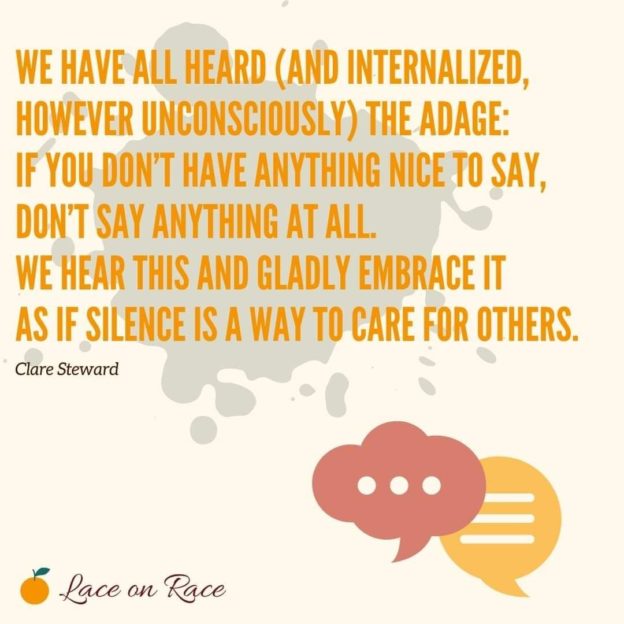I have been using “niceness” as a cover for upholding my own comfort from a very young age. We have all heard (and internalized, however unconsciously) the adage: if you don’t have anything nice to say, don’t say anything at all. We hear this and gladly embrace it as if silence is a way to care for others. As we have learned through Lace, silence is violence and being a “nice white lady” is not a desirable attribute or stance and serves no one but ourselves.
Austin Channing Brown asks us to challenge our behaviors that we have taken at face value and have hoped others would take at face value as well.
Read the article and then answer the queries below. As you answer, do so with honesty, curiosity and devoid of toxic shame.
https://austinchanning.substack.com/p/dear-nice-white-people
- Answer the question that the Author, Austin Channing Brown, asks us:
“What are you afraid of? Release all the bullshit answers about your own frailty, and get honest.”
- What questions have you asked Black and Brown people that you already know the answers to? Why? How did this impact them?
- Can you think of a situation where you stayed silent, under the guise of not knowing what to say or for fear of not saying it well enough?
- Who did your silence hurt and who did it protect?
- What will you do differently next time?
Join us in The Bistro for discussion

Leave a Reply